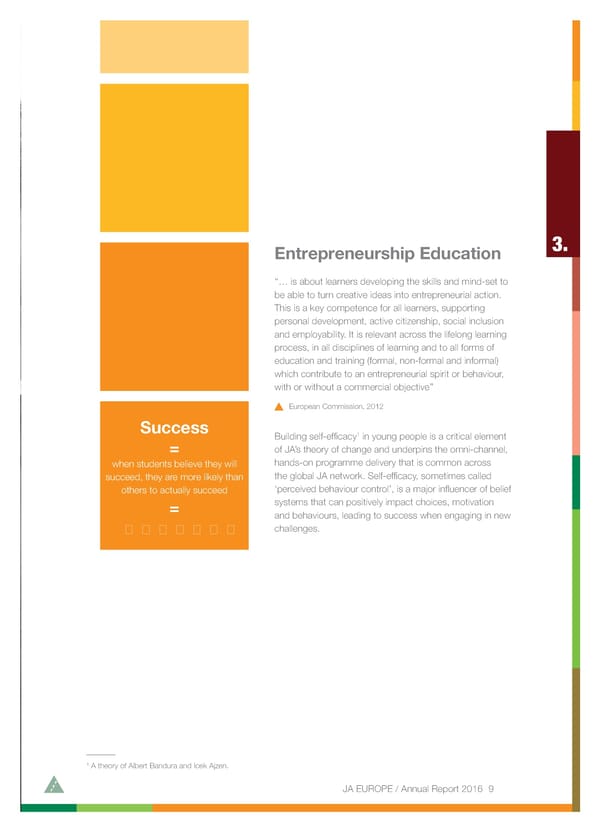3. Entrepreneurship Education ‘‘… is about learners developing the skills and mind-set to be able to turn creative ideas into entrepreneurial action. This is a key competence for all learners, supporting personal development, active citizenship, social inclusion and employability. It is relevant across the lifelong learning process, in all disciplines of learning and to all forms of education and training (formal, non-formal and informal) which contribute to an entrepreneurial spirit or behaviour, with or without a commercial objective’’ European Commission, 2012 Success Building self-ef昀椀cacy1 in young people is a critical element of JA’s theory of change and underpins the omni-channel, = when students believe they will hands-on programme delivery that is common across succeed, they are more likely than the global JA network. Self-ef昀椀cacy, sometimes called others to actually succeed ‘perceived behaviour control’, is a major in昀氀uencer of belief systems that can positively impact choices, motivation = and behaviours, leading to success when engaging in new challenges. ������y 1 A theory of Albert Bandura and Icek Ajzen. JA EUROPE / Annual Report 2016 9
 2016 Annual Report Page 10 Page 12
2016 Annual Report Page 10 Page 12